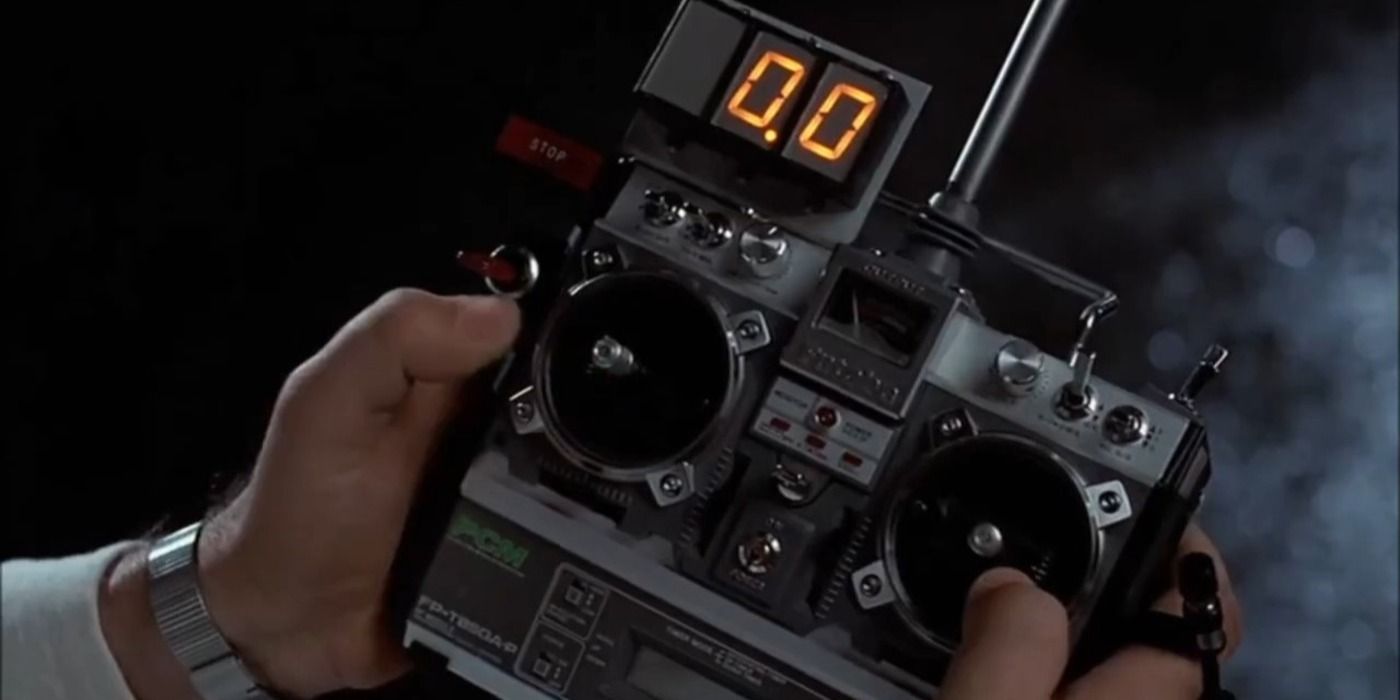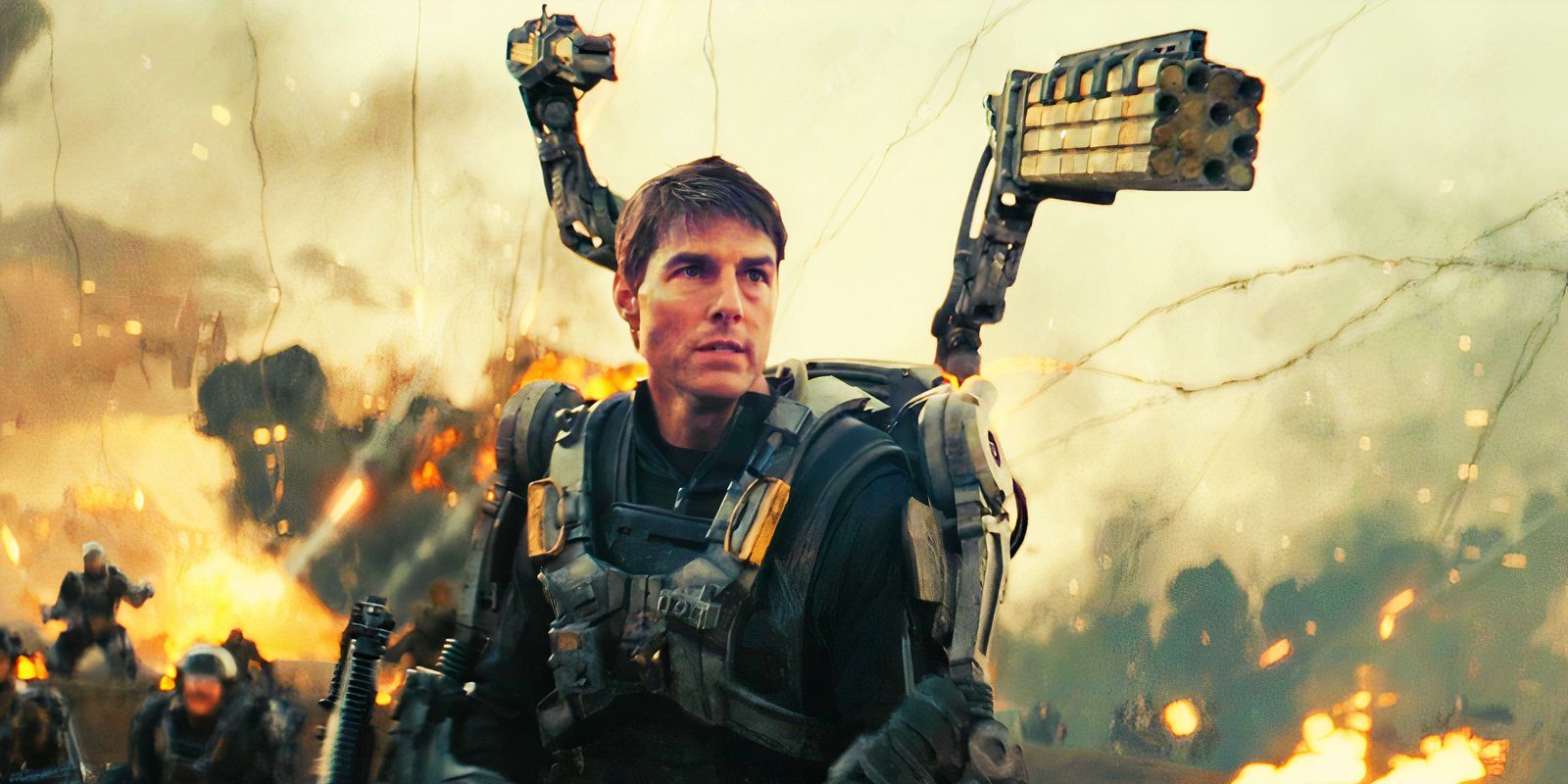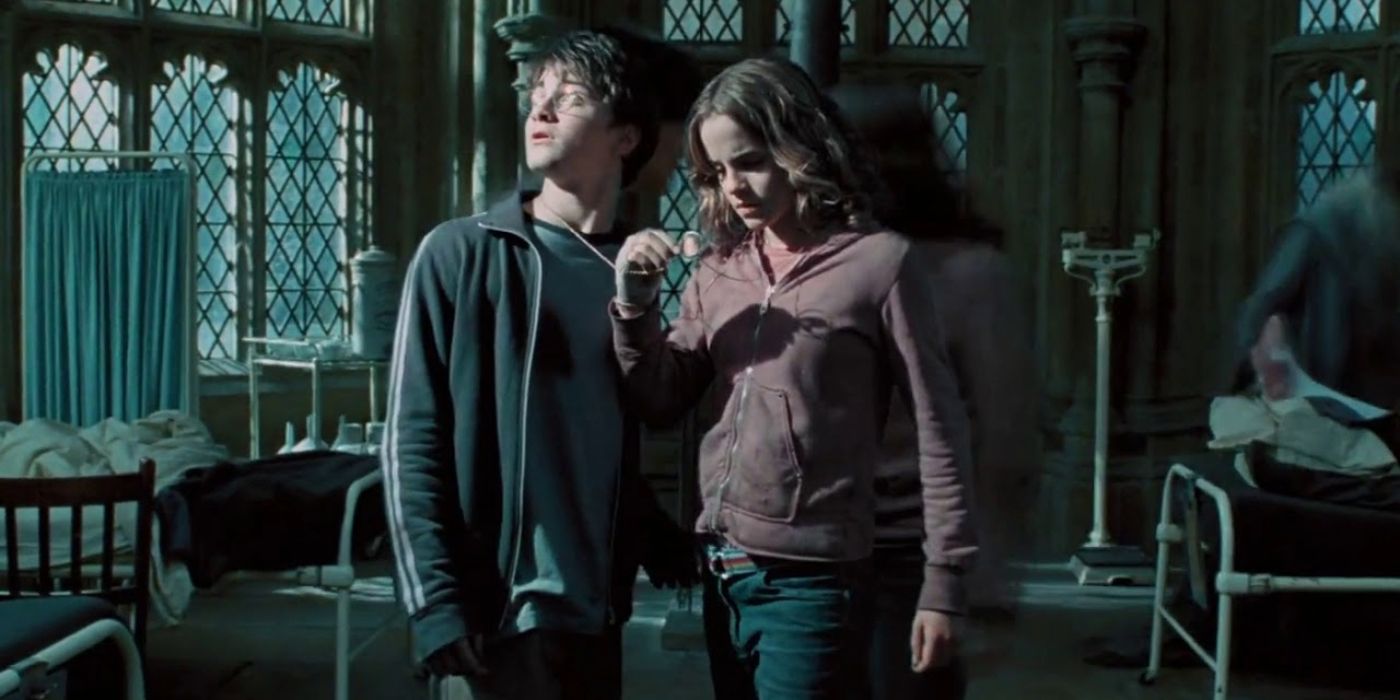Time travel is always a tricky element for to include, but some of them are able to produce some exceedingly clever rules that impact their genres forever. Any sci-fi or fantasy movie that dares open up the can of worms that is time travel risks infecting itself with a litany of plot holes and inconsistencies, not to mention forcing itself to establish consistent rules that must then be abided by. But the best time travel films are able to invent previously unthought twists on the idea that keep it not only sensible, but cutting-edge.
Some films are able to purposefully engage in complication by introducing time-travel paradoxes and unique methods of exploring causality that totally redefine what a step-by-step narrative should look like. Others are able to wield "normal" time travel in interesting ways, weaponizing it as a tool or redefining it as a language of love. Finally, distinct methods of time travel are also always nice to see, reinvigorating what might otherwise be yet another nominal depiction of transversing the timeline.

Sometimes, it's the simplest time travel rules that are the most memorable. One of the most iconic parts of Back to the Future's use of a modified DeLorean car to travel back in time is the need to hit 88 miles per hour before the jump through the time stream can be made. The exact reason behind this number is never given an in-universe explanation, but theories range from needing to offset the rotation of the Earth to the precise amount of time Doc Brown calculated wormholes are stable for.
Funnily enough, the speedometer on the original stock DeLorean capped out at 85 miles per hour, with the car being relatively slow for such a sporty-looking vehicle. The filmmakers of Back to the Future had to compensate for this by replacing the dashboard with a dial that could accurately tick up to this iconic number. It may have been a random speed chosen out of a hat, but 88 miles per hour is still a distinctive aspect of traveling back through time to this day.

Usually, traveling forwards or backwards in time is the result of high-tech machines, such as the flux capacitor attached to Doc Brown's DeLorean or the alien T.A.R.D.I.S. of Doctor Who fame. It's far rarer for time travel to be the result of a biological quantum fluke, as proposed in The Time Traveler's Wife. The film centers on librarian Henry DeTamble, born with a rare genetic disorder that causes him to randomly tumble through time, often meeting his older and younger selves.
The film does a thoughtful job exploring just how difficult such a predicament would make keeping personal relationships, becoming a heart-wrenching romance as Henry's wife scrambles to catch up to different versions of him. The disorder also appears to be genetic, with Henry passing the condition on to his daughter Alba, though she is implied to have a finer degree of control over her travels. The idea of meeting someone over and over again at scrambled points in time is both romantic and terrifying.

One of the most overlooked key points in Tom Cruise's career, Edge of Tomorrow is a ground-breaking sci-fi action movie based off of the amazingly-named light novel, All You Need is Kill. Edge of Tomorrow posits Tom Cruise as a footman in a war against alien invaders, using awesome mechanized frames to bring powerful advanced weaponry to bear against the insidious enemy. The catch is that the aliens are actually weaponizing time travel, rewinding battles they lose and trying again to ensure a slow, inexorable march towards victory.
Edge of Tomorrow further distinguishes itself as a time-loop movie, as splashes of alien blood dousing Tom Cruise's character allow him to mimic their ability to relive the same battles over and over again until victory is assured. This might not make the most sense from a logical perspective, but narratively, it's a fascinating choice. It's surprising that more sci-fi films haven't capitalized on the dangerous potential of time travel as a weapon of war.

Of course, it's unlikely that time-loop movies would have ever come into popularity were it not for Groundhog Day, whose title has practically become synonymous with the niche subgenre. The raunchy comedy sees Bill Murray as a cynical news reporter stuck in Punxsutawney, Pennsylvania to cover the titular holiday. His nightmare begins when he wakes up the next morning in the same day, seemingly trapped to re-live the events for all eternity.
What's remarkable about Groundhog Day is how thoroughly it explores its premise despite being ostensibly the first time-loop movie to present such an idea. Murray probes all the human experience he can out of his nigh-immortal existence, using his time to become a grand master at piano and learn the intimate details of every townsperson. It's only when he can prove genuine love to others that he's able to escape his personal purgatory in Punxsutawney.

While time travel is normally thought of as in the realm of science fiction movies, nearly as many fantasy films throw their feathered hats into the ring with great depictions. Of all places, it's the Harry Potter movies that present one of the most rock-solid versions of closed-loop time travel. That is to say, the causality of Harry Potter is essentially pre-ordained, with actions from time travelers in the future affecting the present to create a perfect, single timeline.
Using the coveted magical artifact, the Time Turner, Harry and Hermoine go back in time a mere three hours in order to save two innocent creatures unfairly doomed to execution, the Hippogriff Buckbeak and Sirius Black. Despite witnessing the actions of both their past and future selves to ensure things go smoothly, it's remarkable just how few plot holes Harry Potter and the Prisoner of Azkaban incurs with the mind-blowing concept. For the soft magic of the series, the Time Turner is quite well-thought-out.

Of course, the Harry Potter series isn't the only major blockbuster franchise to pull off a great version of time travel. Enter X-Men: Days of Future Past, a loose adaptation of the Marvel comic of the same name that sees the mutants stuck in a dystopian future, hunted down by advanced Sentinel machines that can overcome their powers. Shadowcat has to use her powers on Wolverine and send him back through time to ensure the future doesn't come to pass.
Interestingly, Wolverine's consciousness simply awakens in his body in the 70s, leading to one of the best fight scenes in Hugh Jackman's history as the character. This eliminates the possibility of any complications regarding meeting one's past self, as Wolverine's future mind simply inhabits his pre-Weapon X body of 1973. This elegant solution avoids a lot of time travel weirdness that most stories fall prey to, even if the mechanics still suggest that changing the past somehow affects the present.

Even if a time travel movie's story doesn't necessarily pan out for the better, that doesn't mean that the concepts it offers aren't worth dissecting. One of the most contentious and divisive original stories in Christopher Nolan's esteemed filmography, Tenet is an espionage thriller with a particularly interesting take on time travel. When one uses one of the "Turnstyle" machines from Tenet, they don't simply travel backwards in time, but have their causality completely reversed.
This means that the world appears to be moving in reverse as they move forward through it, giving the appearance of a man moving backwards to an outside observer. From reverse martial arts to guns that catch bullets rather than firing them, this technology is as cool as it is headache-inducing. Tenet's story might not utilize this paracausal tech the most gracefully, but it's still an exceedingly clever take on backwards time travel with a basis in real-world physics.

When a good time travel movie fires on all cylinders, it can become a critically-appraised powerhouse, as best shown off by Denis Villeneuve of Dune fame's brilliant Arrival. The plot centers on humanity's first contact with an extraterrestrial species as multiple massive ships appear all over the world. In the United States, a world-class linguist is hired to make sense of the aliens' bizarre form of communication, hoping to stave off interplanetary conflict.
Amazingly, the aliens' communication extends beyond inky circular symbols and past the realm of time and space itself, communicating via time-traveling memories of the future. This reveals that the daughter of Amy Adams' Louise Banks actually dies in the future, and that the "flashbacks" the audience has been seeing the entire film are actually premonitions. Using time travel as a language is one of the most creative implementations of the concept put forth by any .













